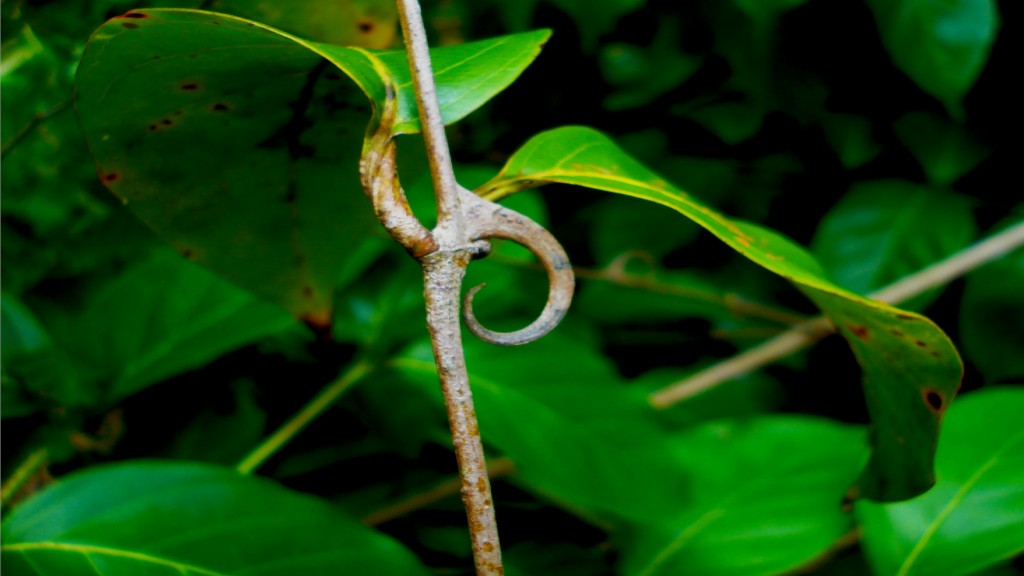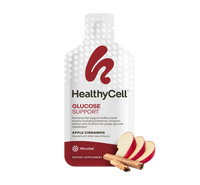What is Cat's Claw?
Cat's claw vine, known scientifically as Uncaria tomentosa, is a tropical vine native to the Amazon rainforest and other Central and South American regions. Its vines climb as high as 100 feet high using hook-like thorns that look like a cat’s claw, which give the plant its name.

Traditionally, cat’s claw uses are vast. It is believed to support good health, relieve a variety of medical conditions, and even treat specific diseases. However, only some of these cat’s claw benefits are supported by scientific evidence.
For hundreds of years, Amazon tribes have had uses for cat’s claw as medicine by extracting phytochemicals from the roots and bark of the cat's claw vine. The most common method of extraction was a simple boiling technique that resulted in a tea.

The anti-aging phytonutrients provided by the cat's claw plant may have supported health and unusual longevity in these Amazonian tribes despite their inadequate diet. For these reasons, scientific researchers traveled to the Amazon to study cat's claw, which eventually led to its commercial sale worldwide. Cat’s claw vitamin supplements are now widely available in capsules, powders, teas, and liquid extracts.
There are several varieties of cat’s claw, but the two most commonly used in dietary supplements are Uncaria tomentosa and Uncaria guianensis.[1]
Cat’s Claw Benefits

Cat’s claw has become popular as an herbal supplement because of many health claims, however only the health benefits below have scientific support for the use of cat's claw herb.
- Boosting Your Immune System
- Relief of Osteoarthritis Symptoms
- Relief of Rheumatoid Arthritis Symptoms
- Relief of Digestive Conditions like Crohn’s Disease
- Healthy Aging through Cellular Repair
- May Help Fight Cancer
- Lowers High Blood Pressure
Boosting Your Immune System
Several studies have shown that cat’s claw may have the potential to increase your quantity of white blood cells [2] and therefore boost your immune system response to fight infections and viruses. One of these studies was done in 27 men with a daily dose of 700 mg of cat’s claw extract per day for two months.
Other studies suggest it has an anti-inflammatory effect, which may help to regulate the immune system, keeping it from overreacting.[3]
Relieving Symptoms of Osteoarthritis
The CDC estimates 1 in 4 American adults suffers from some degree of Osteoarthritis, making it the most common joint condition in the Country. Typical symptoms are stiff joints and painful joints, making movement more difficult.[4]
Studies indicate Cat’s claw extract may suppress inflammation, which leads to reduced pain and stiffness during physical activity. [5,6] One study indicated participants needed less prescription pain medication while taking cat’s claw.[7]
The lowest effective dose seems to be 100 mg per day of cat’s claw extract according to the studies.
Relieving Symptoms of Rheumatoid Arthritis
Rheumatoid arthritis is an autoimmune condition that results in swollen, painful joints that often feel warm.
As with osteoarthritis, clinical trials indicate cat’s claw can help relieve symptoms of Rheumatoid Arthritis due to its anti-inflammatory effects. The smallest dose used in the studies was 60 mg of cat’s claw extract per day alongside participants’ standard prescription medication.
The consensus of the medical community is that more studies need to be carried out to make definitive conclusions.
Relief of Digestive Conditions like Crohn’s Disease
Given its anti-inflammatory impact, there are potential benefits of cat’s claw for people suffering from inflammation-related digestive conditions like Crohn’s disease. A dose of 250 mg per day is recommended to naturally calm inflammation and improve Crohn’s symptoms.
The same anti-inflammatory effect could ease symptoms for a variety of digestive conditions including IBS, colitis, leaky gut syndrome, gastritis, and diverticulitis.
Supports Healthy Aging Through DNA Repair
Specific extracts of cat's claw (such as AC-11®) help support DNA repair. The health of our cells, specifically repairing our DNA from daily damage, is believed to be a key factor in slowing down aging.
All cells and their internal DNA are constantly under attack by environmental factors such as ultraviolet radiation from the sun, electromagnetic radiation from our devices, pollutants in the air, water, and processed foods.[8] For example, cancer and other serious diseases have been associated with DNA and cell damage due to these factors.
Our cells protect DNA from damage with antioxidants and respond to damaged cells by either repairing them or by eliminating them through a process called apoptosis. Eventually, cellular DNA damage outpaces the body's ability to repair it, and that leads to the physical signs of aging and decreased quality of life we all experience as we age. Studies suggest a dosage of 350 mg per day up to 700 mg.
Cat’s Claw for Cancer Treatment
The same cellular DNA repair effects that support healthy aging may reduce the risk of cancer.
In addition, it may help kill or slow the growth of tumor and cancer cells. Studies have shown cat’s claw extract had antimutagenic and antiproliferative effects on the human breast cancer cell line MCF7.[9]
Another study published in The British Journal of Haematology indicates it may help the body fight against leukemia by slowing cancer cell replication and inducing apoptosis.
Lowers Blood Pressure
Animal studies show cat's claw may lower blood pressure by impacting calcium channels in your cells.[10] Other studies indicate it acts on blood pressure by dilating blood vessels. But if you already take medication for hypertension, taking cat’s claw may cause your blood pressure to be too low.
How does Cat's Claw work?
Unique plant chemicals inside cat's claw's are thought to be responsible for the myriad of scientifically-supported health benefits. There are over 30 known plant chemicals with medicinal benefits, including flavonoids, sterol fractions, tannins, glycosides, oleanic acid, epicatechin, quinic acid, and carboxy alkyl esters.
The unique phytochemicals most commonly cited are listed below.
- Epicatechin: Cat's claw contains epicatechin, a powerful antioxidant supporting heart health that may also reduce our risk of developing diabetes.
- Oleanic acid: Cat's claw contains oleanic acid, a substance that fights against viral infections and promotes liver health.
- Quinic acids: Cat's claw also contains quinic acids, which have been studied for their ability to enable better antioxidant function in the body.
- Carboxy alkyl esters: Perhaps most importantly, cat's claw contains carboxy alkyl esters, which have been studied for their ability to support cellular DNA repair function in the body.
Cat’s Claw Dosing
Dosing of cat’s claw depends on the quality and potency of the extract you are taking, the type of cat’s claw used for the extract, and the benefit you are seeking. Below is a list of cat’s claw dosages suggested by research (including the extract-specific information where available) correlated to specific benefits:
- Immune system boost: 700 mg per day of AC-11® cat’s claw extract [11]
- Osteoarthritis symptom relief: 100 mg per day [12]
- Rheumatoid arthritis symptom relief: 60 mg per day [13]
- Relief of Digestive Conditions like Crohn’s Disease: 250 mg per day
- Cellular repair: 250 to 350 mg per day of AC-11® cat’s claw extract [14]
- Blood pressure reduction: There is no agreed-upon dosage, however, the WHO cites an average dose for general health of 20 to 350 mg of extract per day (dried stem bark) or 300 to 500 mg in cat’s claw capsules, consumed in 2 to 3 separate doses during the day.
Which Cat’s Claw Extract Should You Choose?

I recommend my patients take the same extract I take, which is AC-11®. AC-11® is the only cat’s claw extract proven to support anti-inflammation, anti-aging, cellular repair, and immunity —four powerful functions critical to health as we age. Choosing the wrong type of extract can lead to toxicity (e.g. build-up of alkaloids in your system) so choose AC-11® or a pure extract with a USP or NSF certified seal on the packaging.
What Is the Difference Between AC-11® and Cat's Claw?
AC-11 is a sustainably harvested extract of the inner cat’s claw bark from cat's claw plants that come from the Peruvian and Brazilian Amazon. It's not the same as the ground cat's claw plant that can be found in any health food store, which actually may contain harmful levels of tetracyclic oxindole alkaloids (TOAs). Rather, AC-11 is a small mix of phytochemical compounds thought to be the specific active ingredients in cat's claw bark that hold the health benefits.
When AC-11 is made, it goes through a hot water extraction and filtration process to remove alkaloids. Its primary proven benefit is cellular DNA repair.
Clinical research investigating the anti-aging properties of AC-11 has found this substance possesses a wide range of health benefits that support cell and DNA repair. In fact, AC-11 derived from cat's claw is one of very few documented plant chemicals proven to support DNA repair while supporting our immune system's response to inflammation. For a little more technical explanation about AC-11 read more here.
Facts about AC-11
- AC-11 helps your body naturally repair damaged DNA caused by both internal metabolism and external environmental stress.
- AC-11 promotes the production of collagen III. Found in blood vessels, muscles and intestinal walls, collagen III is essential for supporting the health of our muscles, bone, and skin.
- AC-11 helps your body suppress NF-κB in cells, which helps your body fight inflammation.
- AC-11 increases the effectiveness and life span of lymphocytes, a type of white blood cell important for fighting bacterial and viral diseases. Healthy lymphocytes are also necessary for enhancing our immune system and preventing inflammatory disorders from causing age-related health issues.
Why AC-11 Is Superior to Cat's Claw Extract
Taking the standard ground cat's claw extract isn't the best option for achieving cellular health benefits. Alternatively, one should seek out an extract supplement that isolates the medicinal compounds inside the inner bark of cat's claw, known as AC-11.
AC-11 extract is superior to traditional cat's claw supplements because it is free of harmful levels of alkaloids, and it offers stronger, safer and clinically supported health benefits. One of the health-conducive natural compounds that results from the process of extracting AC-11 by using hot water is carboxy alkyl esters (CAEs). This compound is an active ingredient that supports the ability of AC-11 to promote cell and DNA repair — both are important anti-aging benefits.
Because carboxy alkyl esters are only found in pure high concentrations (6–8 percent) in the AC-11 extract, we cannot get the anti-aging benefits it provides from taking standard cat's claw supplements.
Dietary supplements containing AC-11 should include the effective dosage of 350 mg of pure AC-11.
AC-11 is safe, and one of the only cat’s claw extracts with no known side effects. It's an anti-aging extract supported by nearly two decades of research and dozens of peer-reviewed, scientific studies. While companies offering cat's claw dietary supplements may make similar claims, the unique, proprietary extract AC-11 is the only official phytochemical extract capable of providing most of the health benefits attributed to the cat's claw plant.
Cat’s Claw Side Effects, Safety, and Toxicity
Cat’s claw side effects are rare, although there is insufficient information available to determine the herbal’s overall safety when supplemented.
Nausea, upset stomach, and diarrhea have been reported with the consumption of large amounts. Scientists believe the high tannin levels in some versions of cat’s claw extract are responsible.[15]
In addition, several cat’s claw extracts contain alkaloids (nitrogenous organic compounds) that can be toxic to humans. Severe alkaloid consumption can be poisonous, causing conditions including liver damage. For this reason, people should ask the manufacturer of the cat’s claw brand they are using for a statement on alkaloid content. One of the brands I recommend is the pure cat’s claw extract that goes by the trade name AC-11®, which is relatively alkaloid-free.
As a general precaution, I recommend women who are pregnant or breastfeeding and people with specific medical conditions (including abnormal blood pressure, bleeding disorders, kidney disease, and leukemia) avoid cat’s claw supplementation.
Cat’s claw may also interfere with certain medications, such as those for cholesterol, blood clotting, and blood pressure.[16]




